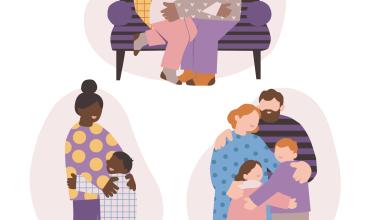What is the UNHCR?
The United Nations High Commissioner for Refugees (UNHCR), also called the UN Refugee Agency, is a global organization. The UNHCR works with countries to protect people forced to flee and find them permanent solutions, which is crucial in the resettlement of refugees around the world.
How does Canada and the UNHCR collaborate in the resettlement process?
Canada is a key player in the resettlement of refugees from around the world. Canada relies on the UNHCR to help determine which refugees will resettle in Canada.
The UNHCR supports the resettlement of individuals:
- who have been recognized as refugees under their mandate,
- for whom resettlement is the most appropriate durable solution, and
- who fall under UNHCR’s Resettlement Submission Categories:
- Legal and/or Physical Protection Needs, Survivors of Torture and/or Violence,
- Medical Needs,
- Women and Girls at Risk,
- Family Reunification,
- Children and Adolescents at Risk, and
- Lack of Foreseeable Alternative Durable Solutions.
Only the most vulnerable refugees are referred by the UNHCR for resettlement.
When a case is referred for possible resettlement, the UNHCR resettlement staff first verifies the individual’s registration and refugee status before setting up an appointment for a resettlement interview. The resettlement interview will include all family members listed in the case, and an interpreter if one is needed.
Resettlement of refugees around the world
In 2023, refugee resettlement reached 96,311 departures. Those resettled were mostly from Syria, the Democratic Republic of the Congo, Myanmar, Afghanistan and Sudan. The majority resettled in the United States, Canada and Germany. The UNHCR estimated that more than 2 million refugees were in need of resettlement globally.
Resettlement of refugees remains a fundamental durable solution and protection tool to meet the needs of these vulnerable people.


